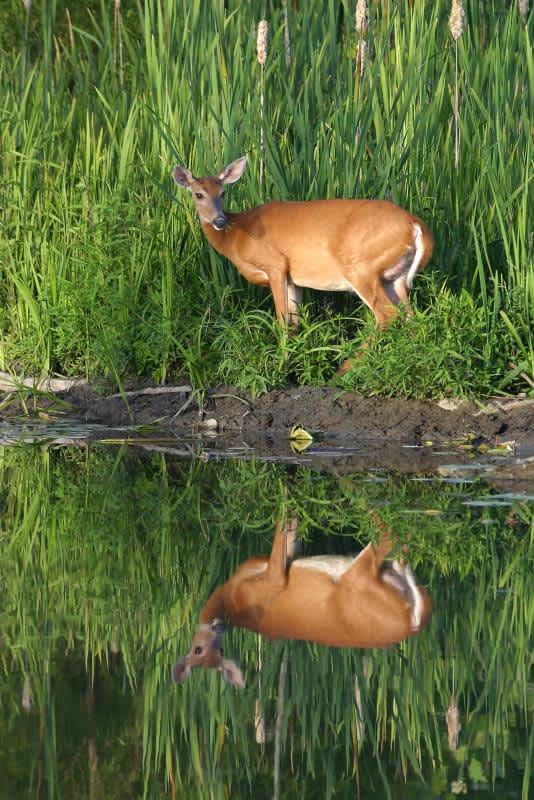Experimental Vaccine Partially Successful at Protecting Deer from CWD
OutdoorHub Reporters 01.07.15

After a four-year study, scientists at Colorado State University have made a breakthrough in their research on a vaccine to prevent chronic wasting disease (CWD) in deer. The researchers published their study in the medical journal Vaccine last month, calling the experimental vaccine a “partial success.”
“Our reported results show for the first time that protection from exogenous prion infection is possible in a species naturally at risk for infection,” the authors wrote in the paper.
CWD is a transmissible neurological disease that affects animals in the deer family, such as whitetail deer and elk. It is thought to be transmitted through prions (disease-causing proteins) and is nearly always fatal. Animals infected with CWD will exhibit weight loss, behavioral changes, and excessive salivation before death. The disease itself is considered one of the biggest threats to deer populations across North America, and in recent years has spread rapidly across the continent. CWD has now been confirmed in at least 22 US states and two Canadian provinces. Needless to say, handling the disease is a high priority for wildlife agencies.
Thankfully, CWD does not appear to affect humans. However, biologists generally advise hunters not to eat venison from deer with CWD, and the disease has been known to affect primates such as squirrel monkeys. Other prion-related diseases such as fatal familial insomnia do affect humans, and the researchers behind the recently-published study say their work could go toward preventing these as well.
“Now that we have found that preventing prion infection is possible in animals, it’s likely feasible in humans as well,” lead researcher Thomas Wisniewski told The Journal Sentinel.
The researchers conducted the study by testing a form of mucosal immunization on whitetail deer. The animals were hand-raised by humans and transported to the CWD Research Facility on the campus of Colorado State University. Of the 11 deer, five were treated with different doses of the vaccine while the six in the control group were given placebos. The deer were then exposed to CWD and housed together.
All six of the deer in the control group contracted CWD and died. All but one of the deer given the vaccines also contracted the disease, but survived an average of 300 days longer than the deer in the control group. Finally, the deer given the highest concentration of the vaccine did not contract CWD at all. Overall, the researchers said the vaccine is a move in the right direction.
“Even if such a vaccine gave only partial protection from CWD, increasing the herd immunity would inhibit the current rapid spread of CWD, thus reducing the zoonotic potential,” the study stated.
Researchers further added that while the vaccine can prove valuable in the fight against CWD, it will take additional study before any treatments are rolled out to wild deer. That said, scientists working with the program are optimistic about the study’s results, and are working to further refine the vaccine.

